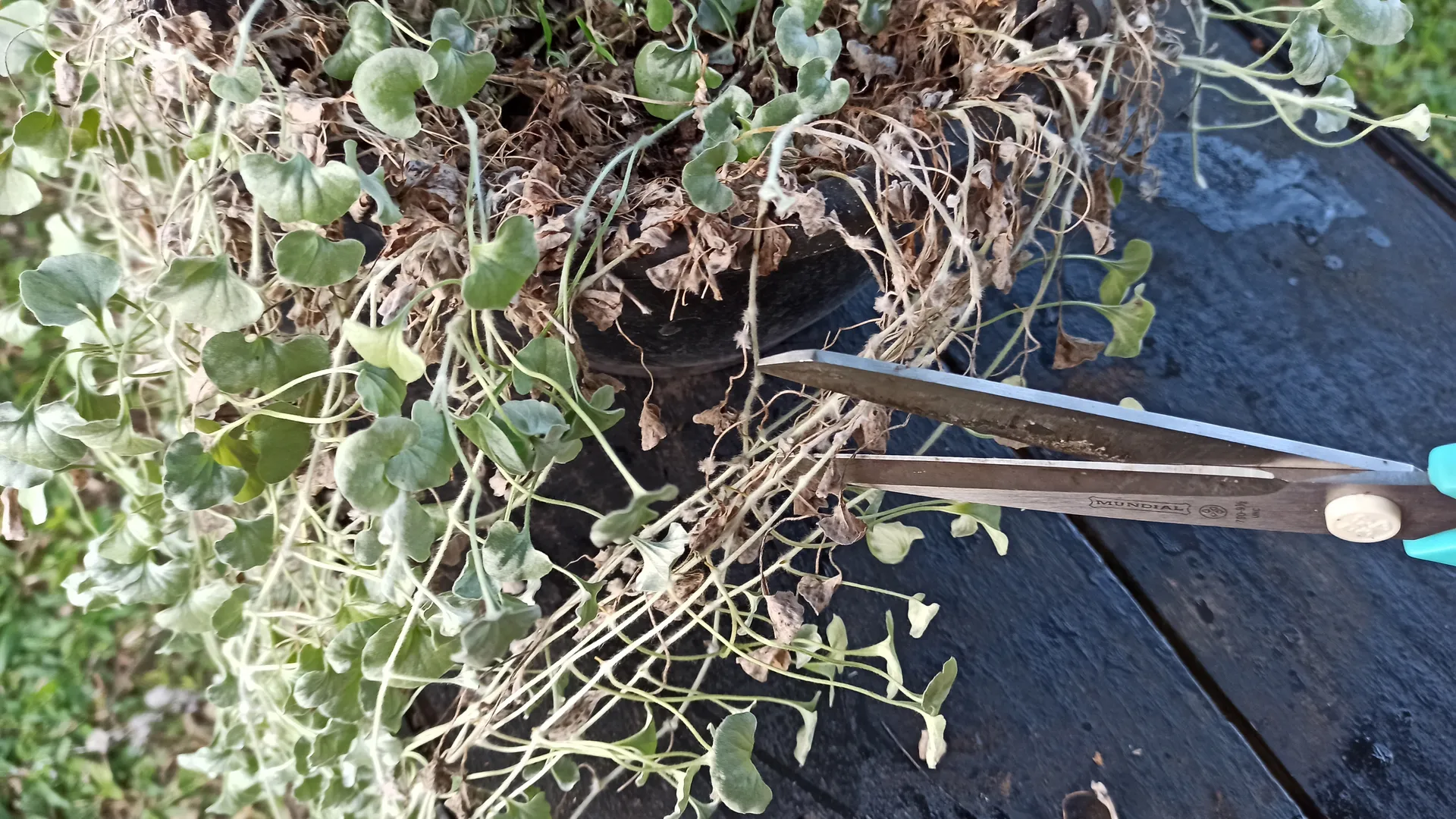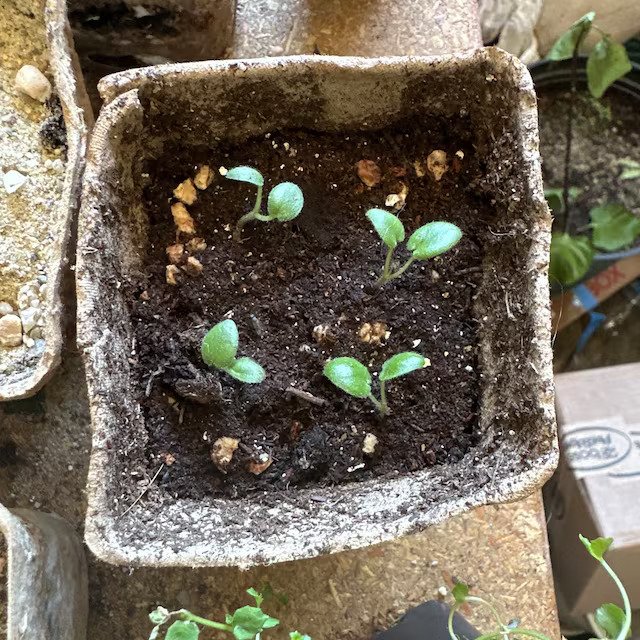Dichondra argentea Silver Falls, commonly known as silver falls plant, silver pony foot, or silver nickel vine, is a botanical masterpiece that graces gardens, hanging baskets, and containers with its silvery waterfall-like appearance.
Dichondra argentea Silver Falls– In this comprehensive guide, we delve into the intricacies of cultivating and caring for this enchanting plant to help you unlock the full potential of Dichondra argentea ‘Silver Falls’ in your garden.
Unraveling the Beauty

Dichondra argentea Silver Falls boasts small, rounded, fan- or heart-shaped foliage in various shades, ranging from vibrant green to subtle grey. The foliage can take on a silvery and metallic sheen, adding a touch of elegance that makes it a sought-after annual in the South. Its resilience to high temperatures, even in extreme heat, makes it a versatile choice for various landscaping purposes.
Plant Attributes
Here’s a short information chart for Dichondra argentea ‘Silver Falls’:
| Common Names | Silver Falls Dichondra, Silver Ponyfoot |
|---|---|
| Botanical Name | Dichondra argentea ‘Silver Falls’ |
| Family | Convolvulaceae |
| Plant Type | Perennial groundcover |
| Mature Size | 2-4 inches tall, trailing up to 3 feet |
| Sun Exposure | Full sun to part shade |
| Soil Type | Well-draining, sandy loam |
| Bloom Time | Rarely flowers |
| Flower Color | Insignificant, small white to green flowers |
| Hardiness Zones | USDA zones 10-11 |
| Native Area | Native to New Zealand and Australia |
Dichondra argentea ‘Silver Falls’ is valued for its silvery, cascading foliage, making it a popular choice for hanging baskets, containers, and groundcover in warmer climates. It’s a low-maintenance plant that adds a unique texture and color to gardens and landscapes.
Cultivation Tips
Light
Dichondra silver falls thrives in full sun, with the ability to tolerate partial sun. Providing ample sunlight encourages dense growth and helps preserve the distinctive silver color of its foliage.
Soil

This plant flourishes in loamy and sandy soils. It is adaptable to regular potting soil in containers, ensuring proper drainage. Its salt tolerance makes it an excellent choice for coastal areas.
Water

Silver Falls prefers dry to average moisture levels. Overwatering should be avoided, allowing the soil to dry out between waterings. If the plant shows signs of wilting, a good drink of water will revitalize it.
Temperature and Humidity
Adaptable to heat and drought, Silver Falls can also thrive in humid climates. Avoid overwatering and ensure well-drained soil. Not frost-tolerant, it is often grown as an annual in zones outside 10-12.
Fertilizer
Typically grown as a seasonal accent, Silver Falls doesn’t require frequent fertilization. Consider applying houseplant-formulated fertilizer if grown indoors. Caution should be taken with organic matter-rich soils to prevent root rot.
Pruning

While not necessitating regular pruning, a trim of its runners can result in a bushier, more compact appearance.
Propagation
Propagation of Silver Falls is restricted due to trademarking. However, seeds of D. argentea are available from various seed companies.
Growing from Seed

D. argentea seeds can be started in a seed tray or directly in the ground. Optimal soil temperature for germination is around 70°F. Follow these steps for successful seed starting:
- Prepare a weed-free, well-drained seedbed or seed tray with loamy, acidic soil.
- Press three to four seeds into the soil without covering, as dichondra needs light to germinate.
- Space seed clusters 18 inches apart.
- Keep the seed bed or tray moist until germination in 7-14 days.
Potting and Repotting
Silver Falls is ideally grown in containers, using high-quality, fast-draining potting soil. When transplanting or repotting, trim long stems before placing them in the new container. Space considerations depend on the size and vigor of companion plants.
Overwintering
To overwinter Silver Falls, bring it indoors to a well-lit area with lightweight soil. Allow the plant to dry out between waterings. Return it outdoors in spring once the threat of frost has passed.
Common Pests & Plant Diseases

Silver Falls is generally trouble-free, but overwatering can lead to root rot. Dichondra flea beetles may be a concern, especially in western states. Detection involves observing jumping beetles on the leaves. Effective products are available to combat flea beetles.
In conclusion, Dichondra argentea Silver Falls stands out not only for its visual allure but also for its adaptability and ease of care. By incorporating this detailed guide into your gardening repertoire, you can harness the full potential of this botanical gem and elevate your landscape to new heights.
Pingback: Best Variegated Philodendrons: Colorful Varieties to Brighten Your Home -